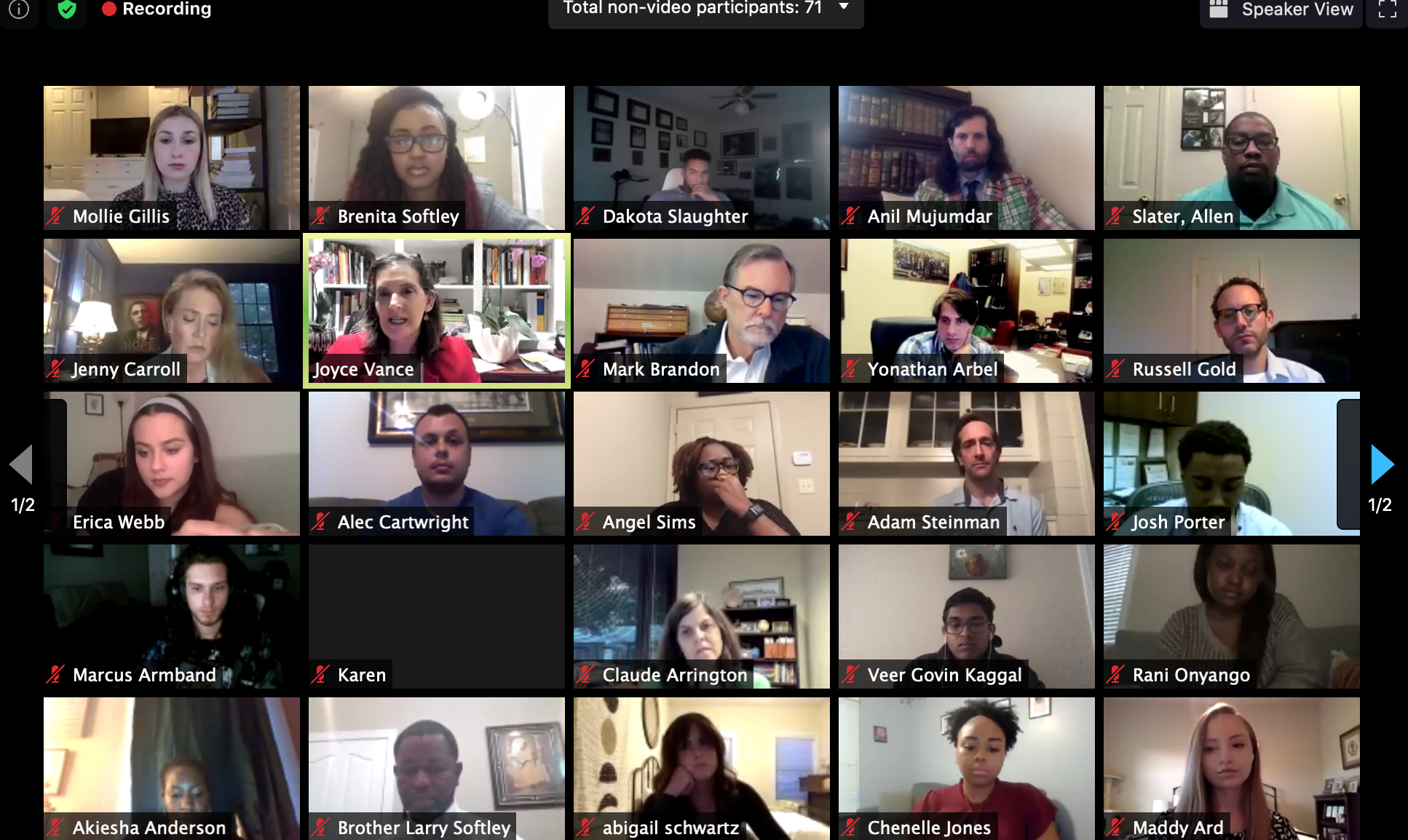 For more than an hour on Wednesday, faculty and students discussed mass incarceration and criminal justice during a town hall meeting.
For more than an hour on Wednesday, faculty and students discussed mass incarceration and criminal justice during a town hall meeting.
The online program drew as many as 100 participants. Sponsored by the Student Bar Association, Black Law Students Association, and the Criminal Law Society, the town hall featured Professor Jenny Carroll, a former public defender, Professor Joyce White Vance, a former U.S. Attorney, Brenita Softley (2L), a prison rights advocate, and Allen Slater (3L), a former policeman and corrections officer. Professor Anil Mujumdar moderated the event.
Panelists examined a wide variety of topics, including what society values, what the criminal justice system currently looks like, and what kind of criminal justice system society would like to have in the future.
Early in the conversation, panelists discussed bias in law enforcement, from arrest to sentencing. Professor Carroll noted the overuse of the criminal justice system as a means to promote safety as well as law and order.
“That contributes directly to a system that says: ‘We do need to lock up children who misbehave at school; we do need to lock up folks, who, regardless of the types of offenses they’re committing, we view as contrary to notions of law and order, and safety,’” Carroll said.
Softley recalled a case she studied as a student in Professor Carroll’s Criminal Law course. The case involved Latasha Harlins, a 15-year-old African-American girl accused of stealing a bottle of orange juice and fatally shot by a convenience store owner in 1991. As Softley reviewed the sentencing guidelines, she noted the judge in the case said Soon Ja Du didn’t look like a criminal.
“What does a criminal look like to you? Because growing up, you’re always told that black and brown people are criminals,” she said.
Slater acknowledged that the criminal justice system is biased, but he would prefer to reform it, not abolish it.
“On the one hand, it’s is important to think about prison abolition and to think about how we can do this better,” Slater said, “and on the other hand, we need to introduce some transparency and accountability for the people that are incarcerated now.”